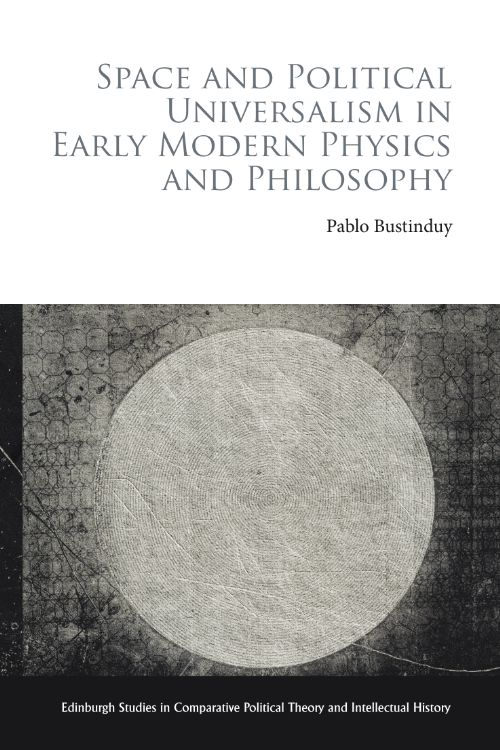Pablo Bustinduy, Space and Political Universalism in Early Modern Physics and Philosophy – Edinburgh University Press, March 2024
Examines how the imagination of space in the early modern period influenced the development of the modern concept of political universalism
- Offers a history and genealogy of the concept of space in the European philosophical tradition
Presents the political effects of the modern cosmological transition- Provides a systematic critique of the Westphalian logic of the State as absolute, universal, autonomous, and unique
- Gives an account of the developments and contradictions of abstract universalism, and its philosophical entanglement with the European colonial project and the nascent logic of capitalism
- Discusses the emancipatory content of universalism and the philosophical causes and effects of its contemporary crisis
How did early modern philosophy of space shape the modern concept of political universalism? In this book, Pablo Bustinduy persuasively argues that political universalism emerged from both the developments of Newtonian science and the formulation of the modern philosophy of the State. In the metaphysics of an open, empty, abstract and absolute space, Bustinduy suggests, the universalist project of modern politics found its logical model and foundation. There, the anxiety of a dislocated world was overcome, and the ontology of modern physics found a specific political expression that, despite being besieged by multiple crises, still animates our political imagination.
By offering a political reading of early modern philosophy of space, Space and Political Universalism in Early Modern Physics and Philosophy reveals the connections between the logical development of early modern science, the contemporary elaborations of the philosophy of the State, and the historical articulations of the Westphalian system, early capitalist social formations, and the European colonial project. In doing so, it offers a powerful reflection on how we might detach democracy from the ‘perilous metaphysics’ of infinite space that has engendered political violence and domination, positing space as an emptiness that prevents the closure of the political itself.

